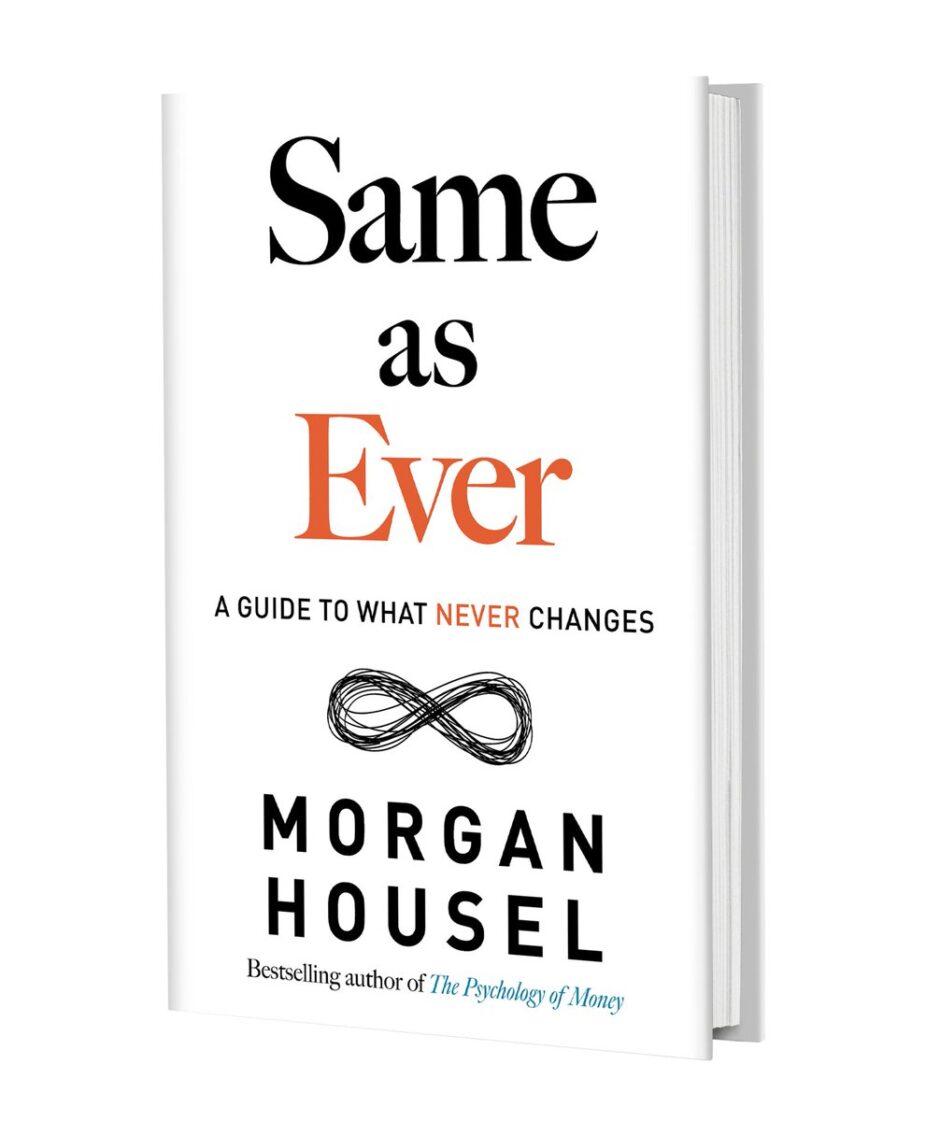Same as Ever (Morgan Housel)
What Resonated with Me
I am particularly interested in the exploration of timeless human behavior in finance and risk. The focus on risk preparedness and the importance of stories in influencing beliefs and actions resonates with me. I also value the discussions on managing expectations for happiness and the cyclical nature of markets. The practical strategies for financial management and understanding the impact of human behavior on financial decisions are key takeaways for me.
Summary
“Same as Ever” by Morgan Housel explores the timeless nature of human behavior, particularly in the context of finance and risk. The book delves into how our responses to greed, fear, opportunity, and uncertainty have remained constant over time. Housel emphasises the importance of understanding these behaviors to navigate the complexities of the financial world effectively. The book also touches on themes such as the power of stories, the cyclical nature of markets, and the significance of managing expectations.
3 Key Takeaways
Housel argues that true risk lies in what we can’t see or predict. Investing in preparedness rather than prediction is crucial because unexpected events will always occur. Over-preparing for the known risks and under-preparing for the unknown ones can lead to significant financial vulnerability.
Stories are a powerful tool in influencing people’s beliefs and actions. Good stories can inspire, evoke emotions, and provide insights that mere facts cannot. Understanding the impact of narratives is essential for making sense of financial markets and human behaviour.
Happiness and satisfaction are often tied to managing one’s expectations. High or unrealistic expectations can lead to perpetual dissatisfaction, while reasonable expectations can foster a more content and resilient mindset. This principle applies to both personal finance and broader life goals.
Interesting Quotes
Other Notes
- Importance of Over-Preparation: Housel advises having more savings and less debt than one might initially think necessary, as a cushion against unforeseen risks.
- Human Behaviour Cycles: The book outlines the cyclical nature of human behaviour in markets, where periods of greed and fear alternate, leading to booms and busts.
- Certainty and Decision-Making: People crave certainty, even in uncertain situations, leading them to make decisions based on a false sense of security. Embracing uncertainty and making probabilistic decisions can lead to better outcomes.
- The Influence of Stories: Stories can simplify complex topics and make them more relatable. They are more memorable and influential than statistics or raw data.
- Competitive Advantage and Complacency: Maintaining a competitive advantage is harder than gaining one. Success can lead to complacency, making it crucial to continuously adapt and innovate.
Every week, I’ll be sharing practical tips and invaluable knowledge to guide you on your path to financial independence.

